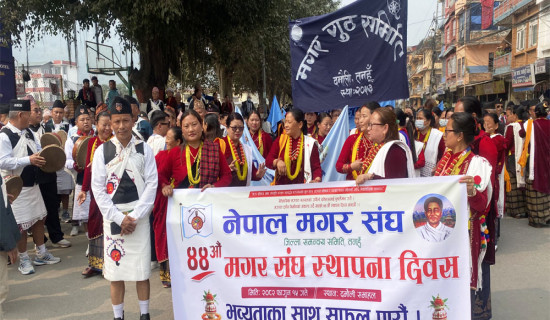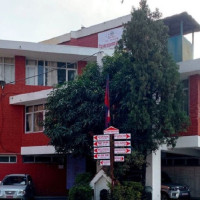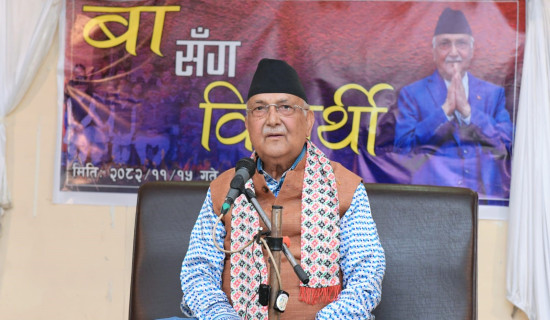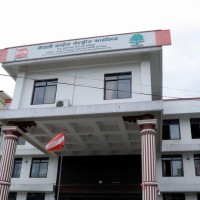- Friday, 27 February 2026
Kalinga Literature Festival concludes
By Tribhuvan Chandra Wagle
Kathmandu Oct.18: The Kathmandu edition of the two-day Kalinga Literature Festival (KLF) concluded here on Sunday. Inaugurating the festival on Saturday, Vice Chancellor of Nepal Academy Jagaman Gurung highlighted various aspects of common culture, religious beliefs, social life, and people-to-people-level relationship between Nepal and India.
"Nepal is the brain, India is the soul," Vice-Chancellor Gurung said, adding that if the brain and the soul do not meet, great resentment can occur in society and the countries as well.Ashok Vajpeyi, a senior Indian poet, said that there was a cordial relationship between India and Nepal since ancient time.
Similarly, former Ambassador of India to Nepal and writer Ranjit Rae expressed his belief that interaction at the public level like the Kalinga Literature Festival would be effective in expanding good relationship between India and Nepal.
Ranjana Niraula, Director of Kalinga Literature Festival Kathmandu, emphasised that the Kalinga Literature Festival should be continued in the efforts of both the countries.
Experts from both the countries expressed their belief that the festival would contribute to the growth of literature and art.They claimed that the festival was a once-in-a-lifetime experience for the lovers of music, dance, art, poetry, and literature.
The festival celebrated the long-standing ties between Nepal and India in the context of the emerging global culture. Half of the speakers and performers were from Nepal. Rest were from India.
According to Ranjana Niraula, Director of Kalinga- Kathmandu edition, the festival was supported by the Indian Embassy and the Indian Government on the occasion of 'Azad Ki Amrut Mahotsav'.
Nepal Life Insurance, Everest Bank, SIB Bank, Nepal Airlines, Himalayan Diary Pvt Ltd, Rastrika Sahitya Pratisthan, Nepal and Surya Nepal were the supporting partners of the festival.
The KLF Kathmandu Edition celebrated the spirit of Lord Shiva and Gautam Buddha in the context of Nepal-India literary ties. The festival focused on the glorious traditions of Nepal.
In 50 separate conference sessions, 200 poets, writers, artists, and book dealers from Nepal and India participated. They recited poems in Nepali, Hindi, and Newari languages.
They also recited short stories, ghazals and sang Deuda songs, In addition, dialogues about the new trends in literature of Nepal and India, Nepal-India relations, roles of the poets, religious beliefs and modern art performance, among other issues were discussed in the festival.
Nepal's senior cultural expert and writer Satya Mohan Joshi and India's senior poet Ashok Vajpeyi were honoured. Joshi passed away on Saturday.

















